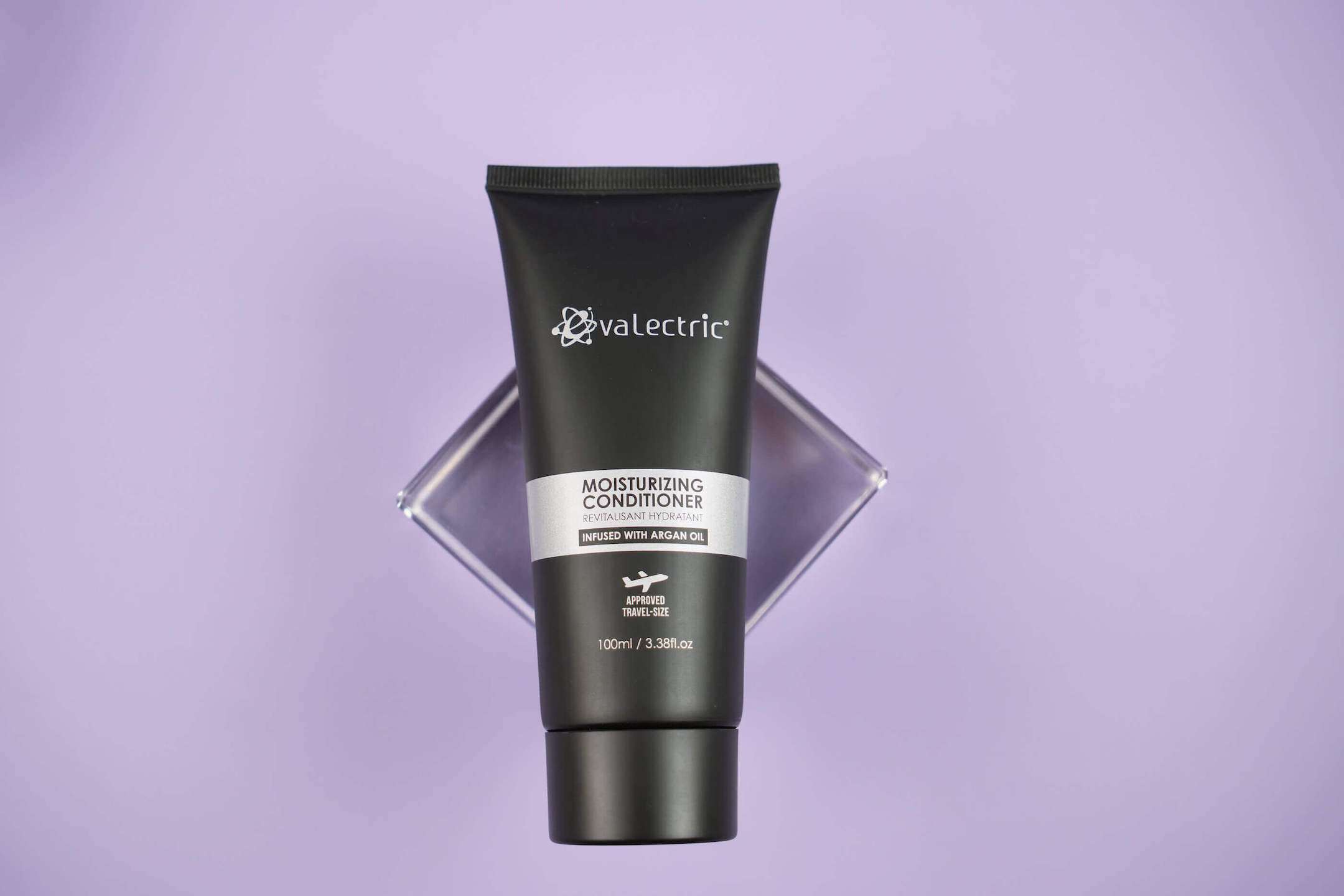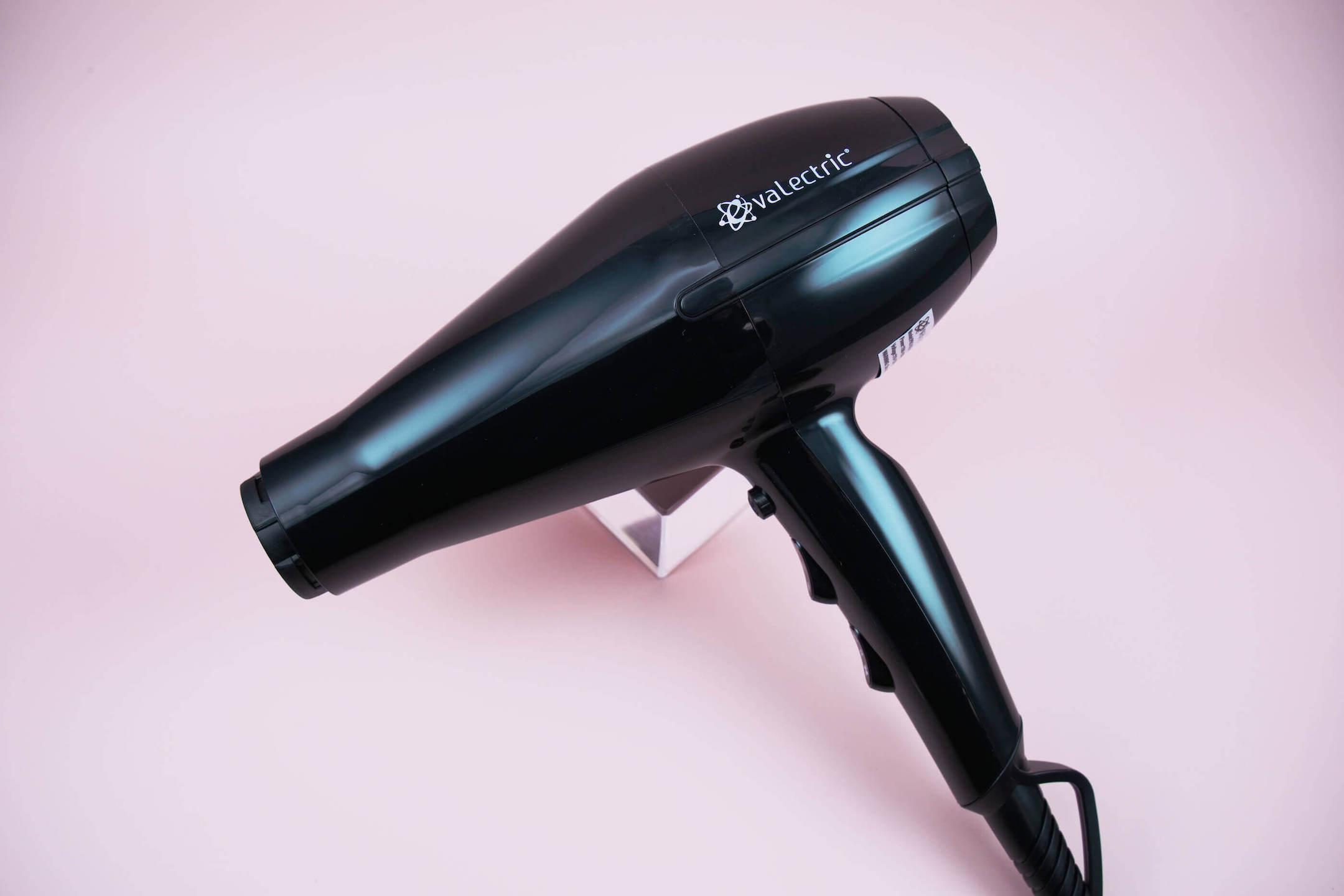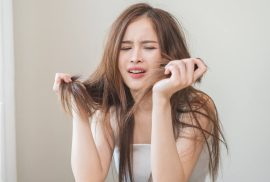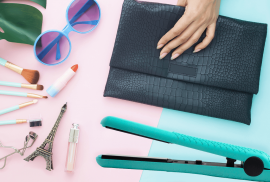Is Sleeping with Wet Hair Really Harmful?

Many people grow up being told that sleeping with wet hair can be dangerous. While some take this advice to heart, others dismiss it once they reach adulthood, believing this information to be nothing more than an old wive’s tale.
However, the truth is, sleeping with wet hair can, in fact, harm the health of your hair. How? Read on as Evalectric explains. We’ll also talk about what you can do to protect your strands if sleeping with wet hair is unavoidable.
What Happens When You Sleep With Wet Hair?
Ready to find out exactly how sleeping with wet hair can be bad for your locks? Here are the main issues that you could encounter:
Breakages and Hair Damage
When your hair is wet, it becomes slightly more elastic. Research shows that each healthy strand can stretch to up to 30% of its length when wet, which is why it’s usually much easier to detangle wet hair instead of doing this once your hair is dry.
However, at the same time, hair is also at its weakest when it’s wet. Sure, it might be a little more elastic but if your wet strands are forced to stretch to more than they can handle, they’ll end up snapping. Go to sleep with wet hair and each time toss and turn, you’ll be creating friction and tension. This will result in increased hair breakages.
Plus, there’s a good chance that not all of your hair is completely healthy too. This means that the 30% stretch won’t apply. This is particularly the case if your hair has been chemically treated. Whether you’ve permed, dyed, or relaxed your locks, any form of chemical processing immediately leaves hair weaker. This means that it will be even more prone to breaking if go to bed with wet hair.
Tangles and Knots
Not only does rolling around in bed with wet hair increase your likelihood of experiencing breakages, but it will also leave you more susceptible to tangles and knots.
Each time you move your hair against your pillow, you’ll be stretching your strands around each other. All of the friction will cause those hairs to interlock. They’ll then end up drying in that position, meaning that you’ll wake up to hair that’s full of knots.
Fungal Infections
A study carried out a while ago discovered that the average pillow contains 4-16 species of fungal flora. Your scalp naturally contains fungi too. This isn’t a bad thing in normal circumstances since this fungi usually remains at a manageable level.
However, warm and wet conditions provide the ideal breeding ground for all of that fungi to thrive. Not only will your scalp be providing this if you sleep with wet hair, but your pillowcase and pillow will also end up warm and damp. This means that fungal growth will be booming all around your head!
This is how sleeping with wet hair can lead to a number of fungal infections and diseases. Some of the most common include:
- Malassezia – this fungus has been linked with seborrheic dermatitis. This condition can cause dandruff to develop on the scalp while also causing patches of the skin on the face and head to turn yellow and oily.
- Tinea capitis – this scalp disease leads to itching and hair loss. It can cause bald and swollen patches to appear on the scalp, along with flaky areas.
- Aspergillus fumigatus – this fungus is commonly found on pillows. When allowed to thrive, it can lead to aspergillosis. This is an infection that can potentially cause serious respiratory problems.
While those fungal-related problems may sound frightening, keep in mind that they’re relatively uncommon. With that said, if you have a weakened immune system, you’ll be much more susceptible to them.
Acne
Although there haven’t been any studies carried out to confirm the link between acne and sleeping with wet hair, many dermatologists warn about how this skin condition can develop if you don’t properly dry your hair before heading to bed.
How are the two connected? Well, as we mentioned earlier, sleeping with wet hair means that your pillow and pillowcase will soon end up damp too. This can cause product residue from your hair to leach onto those fabrics. Once they come into contact with your face, they clog up the pores and cause acne breakouts.
In addition to ‘regular’ acne, fungal acne can also become a problem if you sleep with wet hair. As discussed, those warm and damp conditions stimulate fungal growth. This will soon spread onto your skin, resulting in fungal acne. Not only could your face be affected, but this may also spread to the skin on your body too.
Poor Sleep Quality
You’re probably already aware of how important quality sleep is. Not only does this play a huge role when it comes to the health of your hair and your skin, but sleep is also a necessity for your physical and mental health.
While that may be the case, many often notice that sleeping with wet hair interferes with sleep quality. Due to all of that excess moisture being uncomfortable, it can cause a person to wake up more often through the night, rather than simply sleeping through until the morning. All of these sleep interruptions could lead to everything from increased acne breakouts to soaring stress and anxiety levels.
Protecting Wet Hair While You Sleep
Now that you know how harmful it can be to sleep with wet hair, it goes without saying that this is something you should avoid doing as much as possible. However, there may still be days when you don’t have time to wash your hair until the evening, after which you then just want to crawl into bed instead of spending your precious sleep time blow drying your locks.
When those moments come around, here’s what you can do to save your strands from damage:
Always Use a Conditioner

While it’s true that the more product you apply to your hair when washing it, the greater the chances of product residue making its way onto your skin, this is not a reason to skip the conditioner. Instead, a conditioner will help to seal your hair cuticles, saving you from the appearance of quite so much damage while also giving your hair more ‘slip’. This will reduce friction while also preventing your wet hair from tangling quite so easily.
A conditioner that contains a hydrating plant oil, such as the Evalectric Moisturizing Conditioner, would be ideal for this. This product is packed with argan oil, which is loved for its hydrating and moisturizing capabilities. Argan oil will also help to keep your hair looking smoother, reducing the appearance of frizz and static.
With that said, make sure that you focus your conditioner on the ends of your hair. This tip is applicable at all times. However, it becomes even more important if you’re going to be sleeping with wet hair. The last thing you want is extra product residue on your scalp, which is where all of that fungi resides.
Blow Dry Your Roots

Even if you don’t have time to fully dry your mane before hitting the sack, it would still be worth spending a few minutes blow drying your roots. Why? Because this is the part of your head that has the most contact with your pillow. Your roots also grow from your scalp, which, as you know, is where a large amount of fungi can be found. Keeping this area dry, even if the rest of your hair is wet, can go a long way in preventing the appearance of the problems discussed above.
If you’re in a rush to get to bed, speed up drying time by investing in a high-performance blow dryer. Look for a model with a powerful motor, such as the Evalectric Pro Beauty Dryer. This professional-level hairdryer comes with adjustable speed and temperature settings, along with a power that will enable it to blast your locks dry in no time.
Oil Your Strands
We’ve already talked about how using an oil-infused conditioner can help to keep your strands feeling safe, even if they’re still wet when you go to sleep. However, you can take this effect one step further by also applying some oil to your strands once you’re done conditioning them.
What does this do? Research shows that applying oil to wet hair helps seal the hair cuticles. This then leaves the hair less vulnerable to damage. In the study that we’ve mentioned, coconut oil was used. However, just about any oil would have this effect.
Sleep on Silk
As we discussed earlier, a large amount of the physical damage and breakage that comes from sleeping with wet hair is due to the friction that’s caused when your wet hair rubs against your pillow. So, to keep this damage to a minimum, reducing that friction is essential.
One way to do this is to sleep on silk, or even satin, pillowcases. The smoother surface that this provides will allow your strands to glide over your pillowcase with ease, even if your hair is wet. This means that less friction is created, making it far safer for your mane!
Loosely Tie or Wrap Your Hair
Another way to cut back on friction while you sleep is to reduce the amount of surface area of hair that comes into contact with your pillow. The easiest way to do this is to either loosely tie your hair back before sleeping or wrap your hair in a scarf (silk, of course, to prevent friction!).
Keep in mind that ‘loosely’ is the key word here. Any tight styles or wraps will only cause tension at your roots. This could leave your wet hair even more prone to damage!
Summary
When it comes down to it, sleeping with wet hair every once in a while is unlikely to cause any major problems, unless you happen to be very unlucky! However, do this too often and there’s a good chance that you’ll end up damaging your strands in a way that can take a while for them to bounce back from. If you do ever need to sleep with wet hair, follow the tips that we’ve shared and you’ll be able to keep that damage to a minimum.
Click here to enhance your hair routine with more bestselling products from Evalectric.






